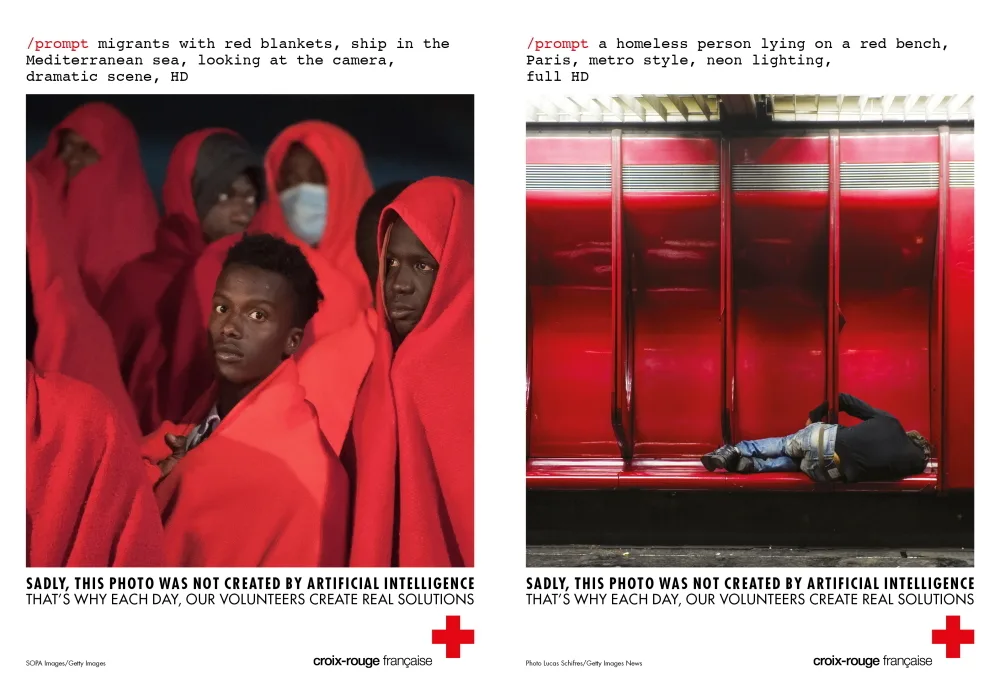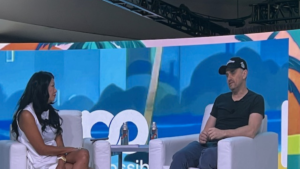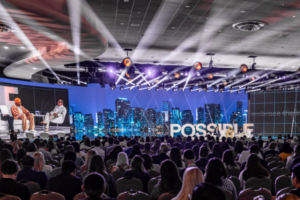By Isabella Quelch, Staff Writer
Humanitarian association, Red Cross, has teamed up with advertising agency, Ogilvy Paris, in a fight against fake images generated by artificial intelligence (AI).
This partnership arose after the storm of AI-generated fake imagery that’s taken to the internet and gone viral in recent weeks.
Passing the feeds of millions, cementing doubt and discontent, the fabricated images appeared to trivialise the true humanitarian crises. Laurent Amiand, Director of Communications and Public Affairs, French Red Cross, commented that the “problem” with AI is that it sometimes “seems almost credible”.
According to the Red Cross, while on the frontline daily, far too often, witnessing disturbing and shocking events of human suffering, the fake content produced by AI swiftly overshadowed authentic photographs by being just asshocking and disturbing. So, when the lines between real and fake were beginning to blur, it was time to break through the proliferation of propaganda that’s senselessly been monopolising the public’s attention.
Red Cross France decided to act to remind us that while our attention is caught up in fake news, there are real images of emergency situations capturing what the volunteers of the Red Cross endure every day. It’s on these real images, where our attention is better used.
Laurent Amiand, Director of Communications and Public Affairs, French Red Cross said: “Today we are faced with an increasing number of crises of all kinds, impacting society as a whole. In addition to these tensions, which never seem to end, we must contend with increasingly frequent battles to combat fake news which, with the advent of AI, sometimes seem almost credible. This campaign, which interacts with current events, allows us to remind people that our teams in the field are in direct contact with reality, and it invites as many people as possible to watch and learn about the real situations that affect the most vulnerable.”
The ‘NOT GENERATED BY AI’ pro-bono campaign, conceived by Ogilvy Paris, calls attention to these real images by the Red Cross that could, shockingly, just as easily be mistaken as AI generated. The brutal difference between the two sets of images is that these disturbing visuals by the Red Cross are real; depicting true humanitarian, emergency events.
Ogilvy Paris’ campaign will be launched in two waves, starting 22 April, on social networks, in magazines, and out-of-home, thanks to the support of JCDecaux, d’Exterion Media and Essence Mediacom, as well as magazine titles such as Society or l’Épatant.
To make the prompts as realistic as possible, Ogilvy Paris leveraged the latest Midjourney feature, Describe, that can write prompts of real images.
David Raichman, Executive Creative Director, Ogilvy Paris reiterated the negative effects of AI’s realism when he stated: “Since nearly a year, AI image generators have become democratised, and, as such, there’s an increasing number of evermore realistic and shocking, but fake, images being created. This phenomenon, sadly, strips away at the impact and credibility of real photography. It’s for this reason that we want to see this campaign touch as many people as possible to drive home the importance of preserving the impact of real photography in its service to big causes.”









